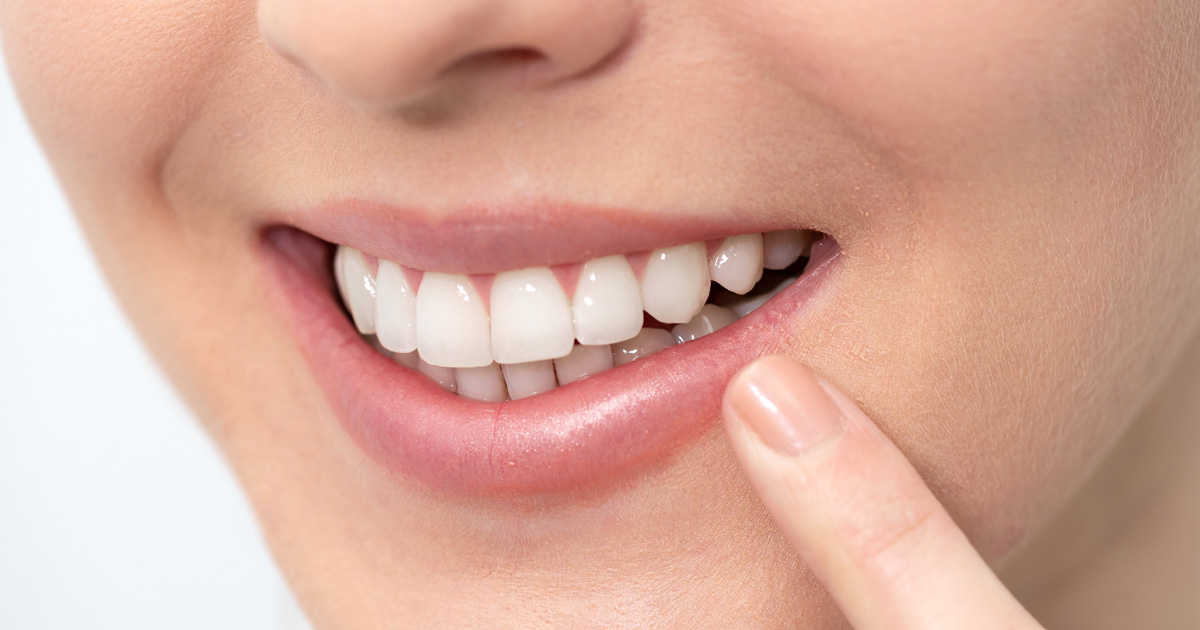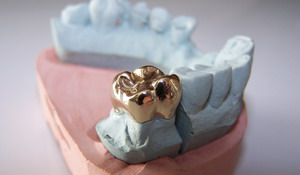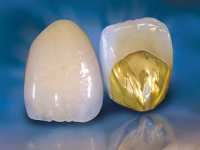
Porcelain Crowns and Porcelain fuse to metal crowns
Home > Health Info > Health Articles

What are crowns?
Dental crown is a tooth-shaped “cap” that is placed over a tooth—covering the tooth to restore its shape and size, strength, and/or to improve its appearance.
The crowns, when cemented into place, fully encase the entire visible portion of a tooth that lies at and above the gum line.
Why Is a Dental Crown Needed?
A dental crown may be needed in the following situations:
- To protect a weak tooth (for instance, from decay) from breaking or to hold together parts of a cracked tooth
- To restore an already broken tooth or a tooth that has been severely worn down
- To cover and support a tooth with a large filling when there isn’t a lot of tooth left
- To hold a dental bridge in place
- To cover misshaped or severely discolored teeth
- To cover a dental implant

Permanent crowns can be made from all metal, porcelain-fused-to-metal, or all ceramic

1.Metals
used in crowns include gold alloy, other alloys (for example, palladium) or a base-metal alloy (for example, nickel or chromium). Compared with other crown types, less tooth structure needs to be removed with metal crowns, and tooth wear to opposing teeth is kept to a minimum. Metal crowns withstand biting and chewing forces well and probably last the longest in terms of wear down. Also, they rarely chip or break. The metallic color is the main drawback. Metal crowns are a good choice for out-of-sight molars.
2.Porcelain-fused-to-metal
dental crowns can be color matched to your adjacent teeth (unlike the metallic crowns). However, more wearing to the opposing teeth occurs with this crown type compared with metal crowns. The crown’s porcelain portion can also chip or break off. Next to all-ceramic crowns, porcelain-fused-to-metal crowns look most like normal teeth. However, sometimes the metal underlying the crown’s porcelain can show through as a dark line, especially at the gum line and even more so if your gums recede. These crowns can be a good choice for front or back teeth.

3.All-ceramic or all-porcelain
dental crowns provide the best natural color match than any other crown type and may be more suitable for people with metal allergies. However, they are not as strong as porcelain-fused-to-metal crowns and they wear down opposing teeth a little more than metal crowns. All-ceramic crowns are a good choice for front teeth.
Share :



